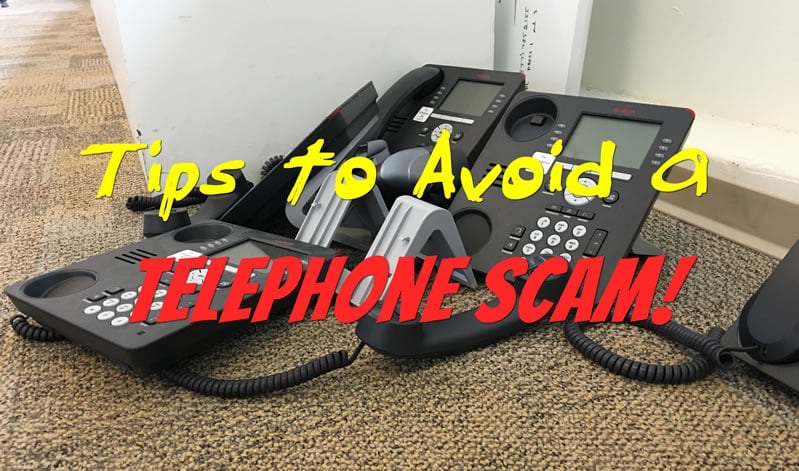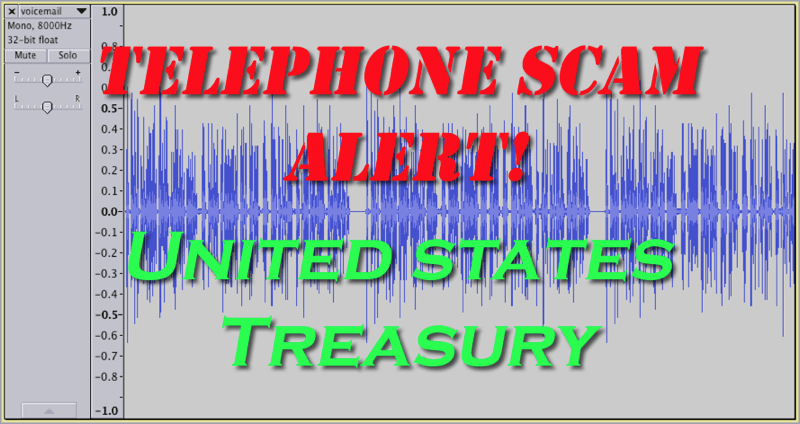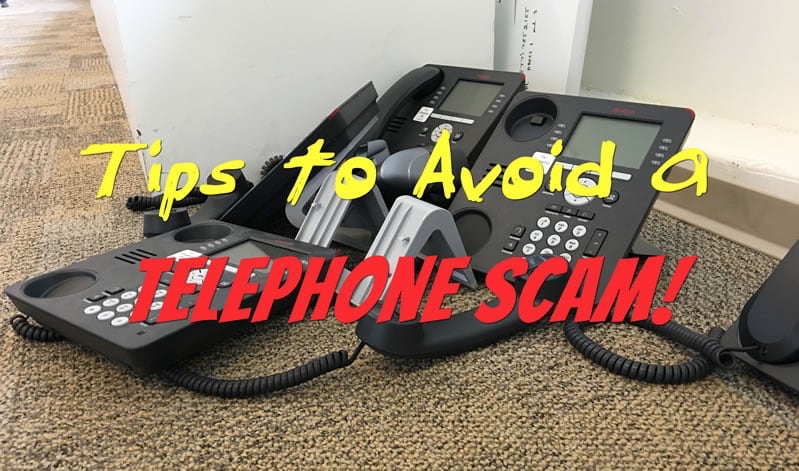Have you received a phone call recently from (202) 754-8175 or (518) 861-9598 or perhaps some other seemingly normal looking phone number claiming to be from a person named “David” from the United States Treasury or other government organization? I received two calls that went to voicemail from the two numbers listed above but with the exact same message (which actually repeats a few times). Watch out! It’s a telephone scam!
Unfortunately, the government-run Do Not Call lists don’t apply to telephone scammers, and it seems that many companies or sales callers seem to be flat out ignoring these Do Not Call lists. This database is supposed to be checked by telemarketers and, ideally, should prevent you from being bombarded with telemarketing or sales calls. Unfortunately, it doesn’t always work and companies move around it regularly. If you haven’t registered your land line or mobile phone number, you definitely should take some time to register those numbers.
Telephone scammers really don’t seem to care. And the fact that the numbers of scammy phone calls seems to be increasing means that people are actually taking the bait dangled to them.
What this Telephone Scam Sounds Like
As I mentioned, I let the unknown numbers go straight to my voicemail. Below is the transcription (obviously a recorded message) which repeated a few times.
Hi my name is David Gray and this message is intended to contact you regarding an enforcement action executed by the United States Treasury intending a serious attention. Ignoring this will be an intentional second attempt to avoid an issue appearance before magistrate judge or a grand jury for a federal criminal offense. My number is (518) 861-9598. I repeat it’s (518) 861-9598. I advise you to cooperate with us and to help us to help you. Thank you.
I have saved one of the voicemail messages (Telephone Scam voicemail) from this telephone scam so that you can hear it (see below). You can hear a slightly accented voice providing the information. Note that not only is the grammar a bit odd (“intending a serious action” and “avoid an issue appearance” among other things), the voice quality is garbled and scratchy, indicating a potentially poor connection or using an Internet telephone service.
[x_audio_player mp3=”https://www.hightechdad.com/wp-content/uploads/2015/11/voicemail.mp3″ preload=”auto” advanced_controls=“true”]
(Note: if the audio player doesn’t appear above, click on the “Telephone Scam voicemail” link above.)
Do note, I did not call back either of the two numbers (202-754-8175 or 518-861-9598) because many times the telephone scammers use a VoIP (Voice over IP) line to make calls over the Internet. Sometimes these numbers are fake, and are phone numbers of actual people who don’t know their number has been hijacked by this telephone scam. I would recommend not calling these numbers.
By the way, the United States Treasury has a page dedicated to scams related to it.
Tips to Avoid a Telephone Scam
So, the example above is just one of hundreds if not thousands that are out there. A while ago, I was subject to a call from a “Microsoft Technician” regarding some sort of issue my computer had. I may write that one up later as it is funny but the scary thing is, they were trying to use the phone to get me to open up my computer for remote access!
While there is no way to avoid being called by a scammer, you can definitely avoid becoming a victim. Here are a few tips you may want to follow:
- If you don’t recognize the phone number, let the call go to voicemail.
- If you do recognize the number, remember that phone numbers and even Caller ID can be spoofed, meaning, that the number and/or Caller ID can be faked to make it look legitimate.
- If you recognize the number or Caller ID, still be careful, especially if you aren’t expecting a call from that organization. DO NOT give out personal, login or banking information over the phone, unless you are the one initiating the call and only if the number is to one that you know is legitimate.
- If you do answer the call, do not give out information. Try not to be argumentative. You may want to say you are recording the call and that you have documented the call. But be careful with any of that, especially since there are state and government laws regarding what you can and cannot record.
- Don’t call the telephone scammer back. They could potentially log you as a potential victim and maybe even use your number for future telephone scams.
- If your telephone service has a Call Blocker feature, add the phone number to that service.
- Keep a list of the numbers that call you and post it by your phone so that you know when to let a call go to voicemail.
- If the call is a robot-call and asks you to “press 1” to continue, don’t do it! It will flag you for potential other calls since you actually responded.
The Federal Trade Commission has some good tips on phone scams and the Federal Communication Commission has some information on unwanted tele-marketers.
Do you have any telephone scam stories or any other tips to add? Be sure to leave a comment so that others can be warned about these dangerous telephone scams.
HTD says: While email scams are everywhere, telephone scams seem to be just as prominent, invasive and potentially dangerous. Be careful!
[rps-paypal]




